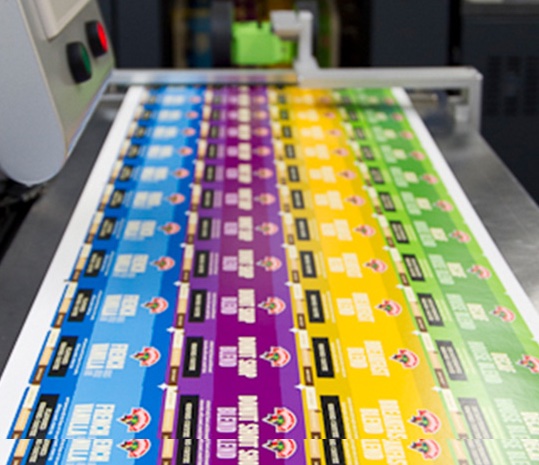
One important aspect is staying hydrated by drinking plenty of water. This helps combat dehydration and dilute alcohol concentrations in the body. Additionally, maintaining a balanced diet with probiotic foods and green vegetables can aid in liver metabolism and the removal of dietary fats.

Common Ways How To Get Alcohol Out Of Your System?
Although these numbers are staggering, many individuals struggling with alcohol consumption are seeking treatment. One of the first steps in overcoming an alcohol addiction is the detoxification process. I’ve told you about how alcohol is processed in your body, how long it can stay in your system, and the effects it has on your body. Now I’m going to tell you how to get alcohol out of your system and ways you can support your body’s detoxification process.

Is Urine Alcohol Concentration Different?

Staying hydrated is essential for flushing out toxins from the body. Water helps to dilute alcohol in the bloodstream and supports kidney function, aiding in the elimination of waste products. Choline, found in eggs, lean meats, and cruciferous vegetables, is essential for liver health. It helps prevent fatty liver by aiding in fat metabolism and supports the liver’s detoxification processes. Exercise can also boost your metabolism, helping your body process alcohol more quickly.
- Exercising increases the metabolic rate of the body and causes the release of hormones called catecholamines.
- Learn more about the short- and long-term effects of drinking alcohol.
- The fastest way to get alcohol out of the system is not to drink at all.
- However, more recent methods that test for ethanol metabolites can detect alcohol even 72 hours after the last drink.
- Your body processes alcohol at the rate of around one standard-sized drink per hour, but booze can be detected in your blood, breath, and pee for a long time afterwards.
- The body generally eliminates 0.015 grams of alcohol per deciliter of blood each hour.
Factors that Affect BAC
Just keep in mind that drinking more than that can be bad for your baby’s growth and development, and can hurt your judgment. The best way how to get vodka out of your system to avoid overloading your system so it can process the booze at a steady clip is by not overdoing it in the first place. But again, what you sip determines how long it’ll take for the alcohol from your booze sesh to clear out of your system. Get a ride-hailing service, even call a friend before you put yourself and others in danger. Have a designated driver or a ride-hailing service ready to go if you plan on drinking enough that your judgment will be impaired. Using our ETG calculator helps you estimate when alcohol will be out of your system for ETG testing purposes.
- A urine test can usually pick up alcohol up to 24 hours after drinking, but a 2007 study showed that some tests can potentially detect alcohol for much longer.
- Even hours after your blood alcohol content is at 0, alcohol can still be detected in a urine test.
- These factors include the type of alcohol and what someone drinks it with (e.g., soda).
Yes, You Can Get Your Life Back…
If one drink has a higher ABV than the other, your liver will have to work harder. The rate at that alcohol can stay in your system depends on various factors. Keep your consumption to a few drinks per week, and avoid excessive consumption. One phase is the acute form of alcohol poisoning caused mainly by binge drinking. The second is a chronic phase in which you drink large amounts of alcohol, but you are conscious and moving naturally due to the high tolerance developed over time. Your experience of the condition’s toxic effect differs depending on whether you are in the acute or chronic phase.
Eat Certain Foods

They include drinking more water, taking certain supplements, or eating particular foods. Studies have found that heavy drinkers metabolize alcohol faster than people who drink moderately. However, this effect is reversed when liver disease comes into the picture. For individuals struggling with alcohol addiction or experiencing severe withdrawal symptoms, medical detoxification programs provide supervised care and support.
- ” self-assessment below if you think you or someone you love might be struggling with an alcohol use disorder (AUD).
- These unpleasant symptoms are due to the accumulation of alcohol metabolites in the body, which are eliminated gradually.
- Meanwhile, other medicines like naltrexone can help reduce alcohol cravings.
- Each of the above drinks contains 0.6 ounces of pure ethanol, which counts as a single serving of alcohol.
- Continuing to snack during and after drinking can also help minimize alcohol’s effects.
- Although falling asleep after drinking can help your body rest while it processes alcohol, sleeping does not speed up alcohol metabolism.

Schedule an appointment or call us and a Ria Health team member can help. While it’s not possible drug addiction to accelerate the body’s natural process of metabolizing and eliminating alcohol, there are steps you can take to support and optimize this process. Understanding alcohol metabolism is crucial for recognizing how long alcohol’s effects may last and the importance of pacing consumption to prevent intoxication and potential harm. Holistic approaches and alternative therapies, including acupuncture, meditation, yoga, and herbal remedies, are often used as complementary methods to support alcohol detoxification. It’s important to consult with professionals trained in these modalities.
How the Body Processes Alcohol
- If your body has developed a tolerance to alcohol, completely stopping—and attempting to flush it out of your system—can lead to withdrawal.
- This is important since alcohol drinks often leave you dehydrated.
- If you’re tired of feeling terrible for days after you stop drinking, it might be time to try medication-assisted treatment for alcohol use disorder.
- Men generally metabolize alcohol more efficiently than women, and age and liver health also impact alcohol metabolism.
- During the course of drinking, alcohol’s effects can disrupt your brain’s natural chemical balance as well as weaken the body’s systems.
It also supports liver function by reducing inflammation and oxidative stress. Artichokes contain cynarin, which stimulates bile production, helping the liver process and remove toxins more efficiently. Knowing the signs of alcohol poisoning and seeking medical help when necessary is crucial.

